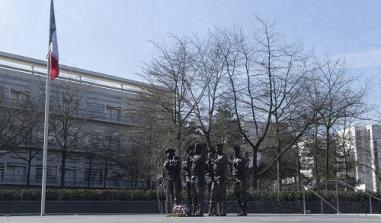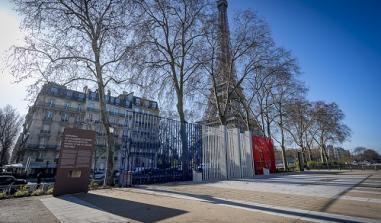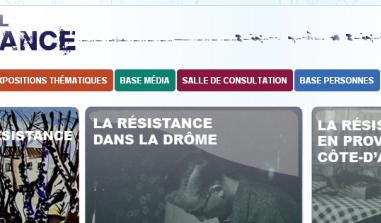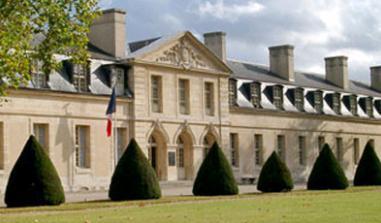Post Office Museum
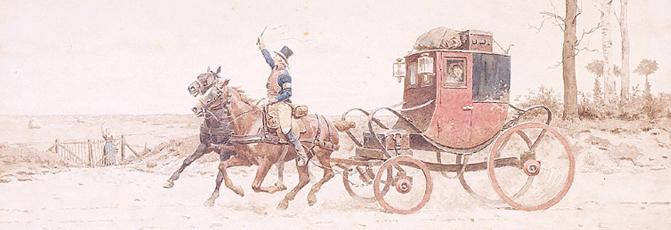
Dormeuse de poste - Aquarelle d'Henri Baud. ©Musée de La Poste
The Post Office Museum retraces the history of transporting written messages, from clay tablets to airmail, from hot air balloons to the postage stamp and not forgetting symbolic characters such as the postillion and the postman.
The Post Office Museum is a place of both remembrance and conservation, a research and documentation centre, focussing on writing, the fine arts, history and society. History Opened in 1946, the Post Office Museum was situated in the 6th district of Paris, in the former Choiseul Praslin Hotel, which dates from the beginning of the 18th century. In 1973 this location had become too cramped and the museum moved into its current purpose-built building at 34 boulevard de Vaugirard, right in the heart of the Montparnasse area. Today the museum occupies 15 rooms and the general public starts its tour from the 5th floor, following a circuit that finishes on the ground floor. Setting the scene In fifteen rooms the Post Office Museum offers an introduction into the history of the Post Office, from its origins to the modern day, along with a taste of the world of philately. The circuit (the tour starts from the 5th floor), which links the chronology with important events, emphasises the social aspect of this business. But it is also a history of the French people that is told here, through the Post Office and philately. Old post boxes, postillion and postmen's uniforms, models of mail coaches, valuable postage stamps and artistic works: all the items in this exhibition form part of a collection that is extraordinary and rich in colour.
Collections The Post Office Museum looks after the stamp and postal collections belonging to the State and those of the Post Office. In a space of 1500 m² the historical, philatelic, scientific and artistic heritage is displayed, consisting of exhibits as diverse as postage stamps, the first road maps, postmen's uniforms, artists' mock-ups, archives and common objects and finally a large collection of mail and postal art.
The historical collections department is a valuable mine of information for historians and those interested in the history of Post Office administration. The Museum holds collections of postmen's almanacs, Post Office calendars, postcards, archives, touring guides, post office books and itineraries, stamps, common objects and contemporary works of art.
The Photographic Library The photographic library contains over 150,000 plates, from famous characters of the airmail service to Villemot's posters for savings accounts and the plates of all French postage stamps. Consultations and loans by appointment on Tuesdays, Wednesdays and Thursdays. Tel.: 01.42.79.24.16 The Llibrary With over 25,000 volumes and more than 850 periodical titles, the Museum's library is host to researchers and those interested in information about stamp collecting or on the history of the Post Office. Works and periodicals can be consulted on the premises, with a charge for photocopies. Tuesdays, Wednesdays and Thursdays 10 am until 6 pm. Tel.: 01.42.79.24.03 The Philately Point In the Museum lobby there is a "Philately Point" where purchases can be made of stamps from France, Monaco, Andorra, Mayotte, Saint-Pierre and Miquelon, newly released current stamps, pre-paid envelopes and the Post Office's philately products, such as First day covers. The philately point is open during Museum opening hours, from Monday to Saturday from 10 am to 6 pm. The Loans Department The loans department can respond to any requests about: Historical collections - tel.: 01.42.79.24.27 Philately collections - tel.: 01. 42.79.24.41 The Conference area The Museum has an auditorium for hire, seating 162 people. Tel.: 01 42 79 23 33 The Historical Collections Department This department looks after iconographic objects and documents that relate to the development of the organisation and the jobs within the Post Office, as well as traditions in writing and correspondence. The Museum also has extensive archives on the history of the Post Office and the telegraph. Consultation of items not on display is by appointment on Tuesdays, Wednesdays and Thursdays. Tel.: 01.42.79.24.23
Post Office Museum of Paris 34 Bd de Vaugirard 75731 PARIS CEDEX 1e-mail: collections.historiques@laposte.net Access by underground: Montparnasse, Pasteur, Falguière Access by bus: lines 28, 48, 88, 89, 91, 92, 94, 95, 96 Opening times The Post Office Museum is open Monday to Saturday from 10 am until 6 pm. It is closed on Sundays and Bank Holidays Admission charges Permanent Collections: Full price: 5 € Reduced rate: 3.50 € Free for: the under 18's, The Post Office Group, the Friends of the Post Office, holders of an ICOM card, group leaders and Inter-Museum pass holders. Temporary Exhibitions: Full price: 5/6 € Reduced rate: 3.50 € / 4.50 € Guided tours: (Additional charge for tours in English) Joint visit (museum and exhibition): Full price: 7 € / 8 € Reduced rate: 5.50 € / 6.50 € (for the unemployed, students and groups of more than 20 people) Free for postal workers
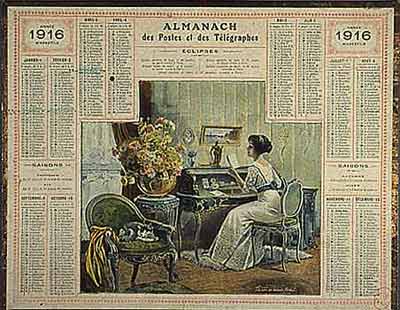
Calendrier 1916. Source : www.museedelaposte.fr
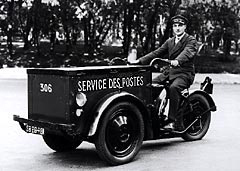
Transport du courrier par triporteur - 1936. Source : www.museedelaposte.fr
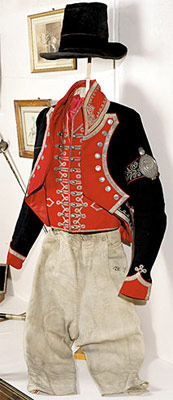
Uniforme de postillon au XIXe siècle. Source : www.museedelaposte.fr
Practical information
34 Bd de Vaugirard 75015
Paris
Collections permanentes : Plein tarif : 5 € Tarif réduit : 3,50 € Gratuité pour : les moins de 18 ans, le groupe La Poste, les Amis du Musée de La Poste, les titulaires de carte ICOM, les accompagnateurs de groupe, carte Inter-Musées Expositions temporaires : Plein tarif : 5/6 € Tarif réduit : 3,50 € / 4,50 € Visite jumelée (musée et exposition) : Plein tarif : 7 € / 8 € Tarif réduit : 5,50 € / 6,50 € (accordé aux demandeurs d'emploi, étudiants, groupe de plus de 20 personnes) Gratuit pour les postiers
Le Musée de la Poste est ouvert du lundi au samedi, de 10h à 18h. Il est fermé le dimanche et jours fériés.


